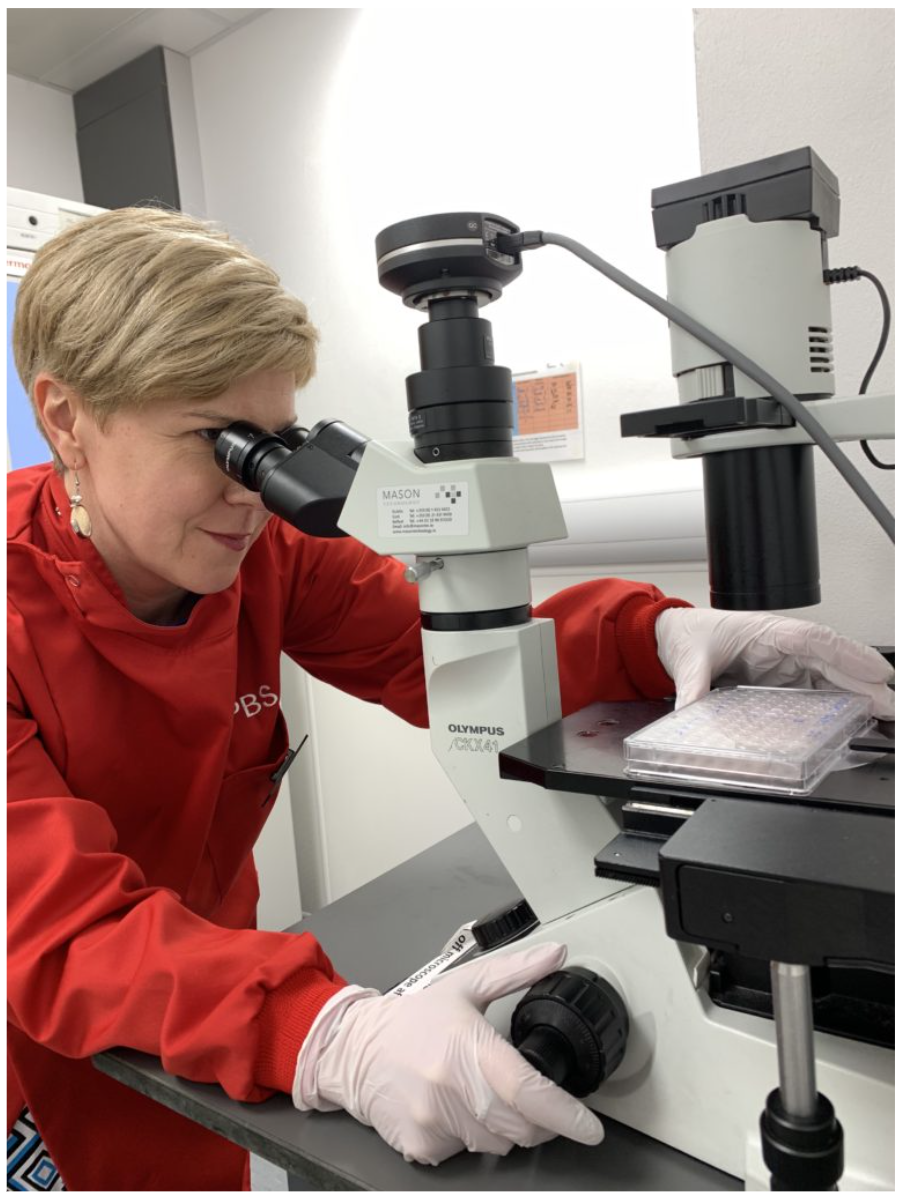Researchers investigating mRNA Vaccine to treat Childhood Cancer
As part of Neuroblastoma UK’s 2024 Grant Round, Dr. Olga Piskareva, alongside an international team of researchers received £208,887 to conduct research into the mRNA vaccine.
Over 36 months, the team will investigate how the same mRNA technology that helped fight the COVID-19 pandemic could be adapted to develop a powerful new immunotherapy vaccine against neuroblastoma. This ambitious project aims to lay the groundwork for a potential breakthrough in childhood cancer treatment.
Neuroblastoma is one of the most aggressive childhood cancers contributing to 15% of cancer related childhood deaths. At diagnosis half of the patients have a tumour spread to other parts of the body, and relapse is very common. Despite advances in available therapies, children with drug-resistant and relapsed neuroblastoma have a dismal outlook with 5-year survival rates of less than 20%; highlighting the need for new treatment.
What is an mRNA vaccine?
The messenger RNA (mRNA) is a short-lived molecule that drives protein production. Researchers learnt that mRNA could be used to develop vaccines and protect people against various diseases. We learnt about its great potency during the COVID-19 pandemic. The vaccines use in the COVID-19 pandemic highlighted the remarkable potential of mRNA technology.
During cancer development the patient’s immune system loses its ability to recognise and destroy cancer cells. So, cancer mRNA vaccines can help to re-educate the immune system to identify and combat the tumour offering long-term protection and reducing the chances of relapse.
Why is there interest in the mRNA Vaccine?
The mRNA vaccine has sparked interest across cancer research over the last decade as a promising treatment for cancer immunotherapy. Despite growing interest, Dr. Piskareva’s research is the first to explore and test this modality in treating neuroblastoma specifically.
Currently, only 1 in 5 children with relapsed or drug-resistant neuroblastoma survive. Immunotherapy vaccines hold great promise to effectively target the tumour. They are also anticipated to have fewer side effects, such as infertility and hearing loss, which often affect children undergoing neuroblastoma treatment.
What are the aims of the research?
The ambitious project aims to develop a new mRNA vaccine to treat high-risk neuroblastoma. The vaccine will be specially designed to target several unique features (called antigens) found on the surface of neuroblastoma cells.
Using findings from earlier studies, the team will deliver the vaccine with the aid of a small delivery molecule called RALA, which facilitates the mRNA's entry into immune cells. They will test how stable and effective the vaccine is, and measure how well it re-educates the immune system.
The team will test the vaccine in laboratory models of metastatic neuroblastoma, which represents the spread of cancer in the body, after chemotherapy to see how well it works in a realistic treatment scenario. If the results are positive, the project will move to the next phase, where safety (toxicology) is studied. This research could also support applications for orphan drug designation (where authorities give extra help to companies making medicines for rare diseases) and early-stage clinical trials in children.
Who is leading the research?
Led by Dr. Olga Piskareva from the RCSI University of Medicine and Health Sciences, the international team includes:
● Professor Helen McCarthy from Queen’s University Belfast in the UK
● Dr. Miguel Segura and Dr. Lucas Moreno from the Vall d'Hebron Research Institute (VHIR) in Spain
● PD Frank Westermann from the German Cancer Research Center (DKFZ) and the Hopp Children’s Cancer Center (KiTZ) in Germany
● Professor Juliet Gray from the Centre for Cancer Immunology at the University of Southampton in the UK
What are the benefits of the mRNA vaccine if successful?
Currently, no mRNA vaccine has entered clinical trials for neuroblastoma. Therefore, this project represents a unique opportunity for progress.
It is anticipated that the research will help to collect sufficient data for an orphan drug application. This route will provide neuroblastoma patients in the EU with first-hand access to clinical trials more quickly.
In the long term, this project aspires to advance the development of a safe and highly effective multiepitope mRNA vaccine designed to prevent tumour relapse. By reducing the risk of devastating long-term side effects, such as secondary cancers, bone necrosis, hearing loss, and infertility, it offers the potential to transform care for children battling aggressive neuroblastoma.
The ultimate goal: to improve survival, enhance quality of life, and put a stop to tumour recurrence once and for all.
Zara Aitchison, Trustee of Grants at Neuroblastoma UK said:
"This research is a promising path toward clinical trials aimed at reducing relapse rates in high-risk neuroblastoma. This innovative research holds significant potential to transform treatment not just for neuroblastoma, but for a broader spectrum of childhood cancers."
Dr. Olga Piskareva, from RCSI University of Medicine and Health Sciences in Ireland said:
“We are delighted to pioneer an mRNA vaccine development for children with neuroblastoma with the Neuroblastoma UK support. Our international team has complementary expertise to bring this therapy to children with neuroblastoma. The mRNA vaccine technology is like LEGO bricks. By combining different bricks, we can tailor the vaccine to the individual needs with high precision. We thank the Neuroblastoma UK fundraisers and supporters for their time and dedication to raising funds for the high-risk, high-gain research.”
Funding research is an integral part of our work here at Neuroblastoma UK to achieve our mission of finding a cure for neuroblastoma. But we can only continue with the kind donations made by our supporters. Make a donations today and help make real change.



